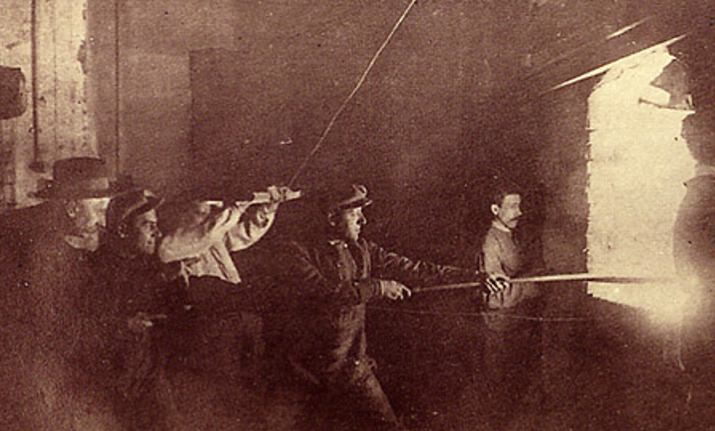FOR WHOM THE BELL TOLLS - P16
Once upon a time there was a song called 'Maria Dolens'. It was sung by a great Italian voice, elegant and sober as was the custom in the mid-20th century. It all began on 28 August 1960, at the Alpine Song Festival held at the Zandonai Theatre in Rovereto. Bixio Cherubini and Carlo Concina, incidentally those who wrote Vola Colomba and dozens of other memorable hits, had composed a piece dedicated to the Bell for the evening. They had written it for Nilla Pizzi who, despite being a serial Sanremo winner apparently did not use autotune.
It was set to be a memorable night, and it was. But not because of that song, which in fact is nowhere to be found anymore. Pizzi sang and was a great success as she often was, but she was not the star of the evening. Immediately after her performance, Father Iori, the Director of the Bell, intervened to announce that the Bell needed to be recast. The audience in the auditorium were not expecting this, and it was a cold shower for everyone. A few days later, on 31 August, while Nilla Pizzi sailed to other shores, Maria Dolens sounded her last chimes from the top of the castle bastion. 'The Bell is broken, it must be recast,' was the blunt announcement made in a Regency press release. Father Iori informed the Order of Malta, knowing that the recasting project needed financing and a foundry that was up to the task.
A small executive committee was set up, and began on the one hand to address the technical issues, and on the other hand to think about a new arrangement for the Bell. Meanwhile, Father Iori, a practical man, had travelled to Rome for a series of ministerial talks. There were projects to be carried out or launched, and in spite of everything there was work to be done. On 25 October, the Director was received in private audience by Pope John XXIII. He was given an artistic reproduction of the Bell, and asked to provide a hand-written phrase to be engraved on the casing of 'Maria Dolens' once it had been recast. A week later, the Pope's 'thought' arrived in Rovereto: In pace hominum ordinata concordia et tranquilla libertas, 'In peace among men, ordered harmony and serene liberty'. A warning that is clear, sharp, precise, and perhaps for this very reason difficult to put into practice. A way of emphasising that Peace is not simply the absence of war, but a balance between peoples, based on mutual respect and a freedom experienced without fear. As in a song, it is important that everything is in its place, that the harmony works, that no one exceeds their limits. Values that are almost taken for granted in music, but no longer appear to be so in everyday life. And this is why those words must be remembered today, in an era like ours, where diplomacy struggles to counter the return of force as a tool for resolving international disputes.







